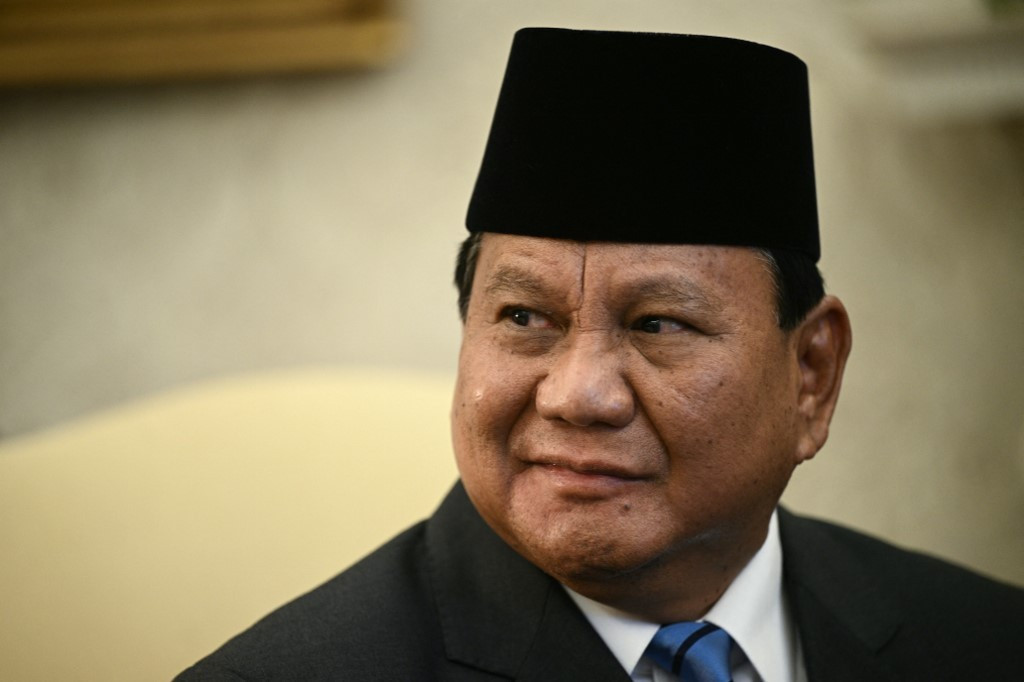News
Prabowo’s big-ticket experiment on education system
Tenggara Strategics September 2, 2025 President Prabowo Subianto looks on during a meeting with United States President Joe Biden in the Oval Office of the White House in Washington, DC, on November 12, 2024. (AFP/Brendan Smialowski)
President Prabowo Subianto looks on during a meeting with United States President Joe Biden in the Oval Office of the White House in Washington, DC, on November 12, 2024. (AFP/Brendan Smialowski)
Prabowo Subianto's administration is rolling out a significant overhaul of Indonesia's education system, introducing new initiatives like Sekolah Rakyat (People's Schools), specialized science institutions and an expansion of military-style schools. While these are presented as reforms, critics worry they could neglect the root causes of the country's education problems while incurring substantial financial and social costs.
Prabowo has acknowledged that significant budget leakages persist in the allocation of education funds from the 2026 draft state budget, and that such inefficiencies are often felt most acutely by communities in Indonesia’s lesser-served regions. For this reason, he has emphasized the importance of ensuring transparent and well-targeted management of education spending.
However, his proposed policies may unintentionally exacerbate these issues. The creation of new programs could lead to institutional overlaps and potential misuse of funds under the guise of new initiatives. This approach, which seems disconnected from the existing system, could impose a heavy financial burden on the state without addressing the core structural problems that have long plagued Indonesia's education sector.
Indonesia’s education system continues to face long-standing challenges, including dilapidated school buildings, stark disparities in teacher quality and welfare, frequent and disruptive curriculum changes, weak coordination between central and regional governments and limited support for students with special needs.
The plan to place People's Schools under the Ministry of Social Affairs rather than the Ministry of Primary and Secondary Education, for example, could fragment education funding and institutional oversight. Furthermore, including programs like free nutritious meals within the constitutionally mandated education budget risks diverting resources away from urgently needed structural improvements and shifting resources away from urgently needed structural improvements.
The administration also intends to expand the establishment of Taruna Nusantara High Schools, which are elite, semi-military institutions managed by the Defense Ministry. The government has already allocated Rp 1.4 trillion to build six new schools in various regions, including within the newly planned Nusantara Capital City in East Kalimantan. The existence of these exclusive institutions risks deepening inequality within an education system that is already struggling to provide high-quality, inclusive education to all students.
Prabowo has also initiated specialized institutions like the Sekolah Unggulan Garuda Baru to address the nation's lagging performance in science and technology. However, programs that prioritize physical infrastructure and rebranding without careful planning are highly vulnerable to budget cuts and changes in political leadership.
The Sekolah Unggulan Garuda Baru program, for instance, had its initial budget of Rp 2 trillion cut by 60 percent under Prabowo’s own efficiency measures. This raises a pressing question about the long-term sustainability and effectiveness of these projects once Prabowo is no longer in office.
If left without continuity, the substantial funds spent on them could be wasted, ultimately failing to deliver lasting benefits for the Indonesian people. The public education systems, which have been underdeveloped for decades, should have received more attention from Prabowo’s administration so that the root causes of educational underdevelopment can be addressed and directly benefit students and teachers across the country.
What we've heard
President Prabowo is closely surrounded by alumnus of the military-style senior high school SMA Taruna Nusantara. Among these are Prasetyo Hadi, Teddy Indra Wijaya, Sugiono and Sudaryono. This does not include ministers outside the Gerindra party who have come from this high school.

